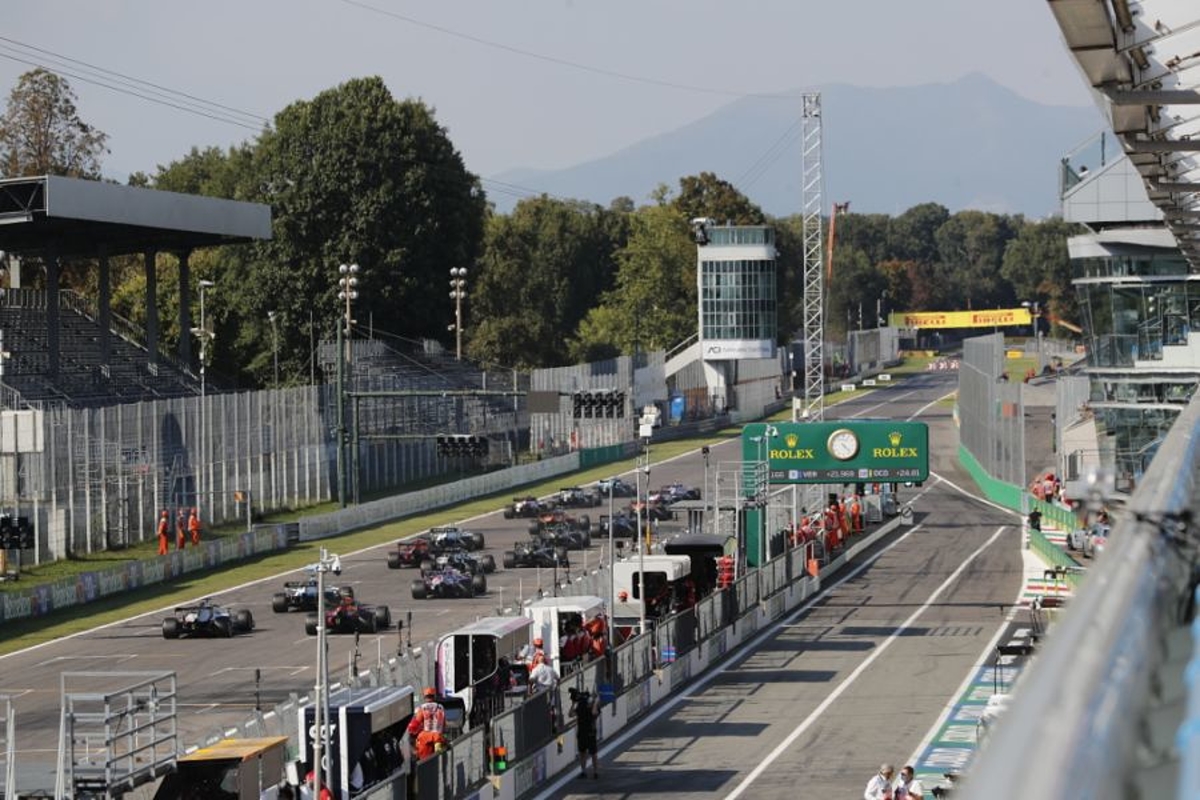With the news of the Australian Grand Prix's postponement to later in the season and the return of Imola for what will be the second race of the campaign, it would appear this year's Formula 1 calendar is out of control.
A record-breaking 23 races are scheduled, which is fine as there is provision for such an amount in the Concorde Agreement, but the lopsided nature of the scheduling now is brutal.
The Covid-19 crisis has forced what would have been the season-opening Australian Grand Prix to be delayed until November 21, sandwiched in between a newly created Americas triple-header and Middle Eastern double-header that closes the year.
With such a move, the total number of races spanning a 16-week period after the August summer break and in the run-up to Christmas will be 12.
So after all of the heroic efforts from every single person involved last season to get the show on the road, the sacrifices made for the sake of the sport, the organisers have appeared to throw that back in everybody's face with a ludicrous calendar.
Remember all of the talk about triple-headers only being a necessity in the Covid-hit 2020 calendar and how teams would be unable to cope if any were included in future years?
F1's solution to that is to include three for this year, and those three are back-to-back-to-back. Potentially, depending on the Covid restrictions in each host country, it could mean up to 12 weeks away from home for some members of staff.
Last season the four triple-headers were more of a necessity as F1 battled to compile a calendar in the face of the coronavirus, and in fairness, far more manageable.
The first saw two races in Austria followed by a trip to neighbouring Hungary; the second comprised a double-header in Britain and a short flight to Spain; with the third, Belgium and two races in Italy.
Now while the last was in the Middle East, the opening two races were in Bahrain, with concluding Abu Dhabi just a 50-minute flight away. They at least made sense.
The same cannot be said on this occasion. While the first of the triple-headers is European-based, with Belgium, the Netherlands and Italy, beyond that logic goes out of the window.
The races in the USA, Mexico and Brazil may seem straightforward, three races in the Americas, but it actually entails a near-16,000-mile round trip out of London.
For perspective, the collective mileage of travelling between Paul Ricard, the Red Bull Ring and Silverstone is 3000 miles shorter than just travelling between Mexico City and Sao Paolo.
The F1 circus will have completed another 16,000-mile round-trip prior to the Americas leg with a triple-header in Russia, Singapore and Japan.
With the Melbourne race now penned for two weeks after Interlagos, what is the likelihood team members manage to get home afterwards?
These people are human beings. Many will have young families to look after, many will have people dependent on them. Is it right that they may have to sacrifice even living to complete a season?
Driver fitness will be another key factor. Can they complete the preparations they are accustomed to between races?
They coped last season but the sheer volume of travel intended for this year may mean peak fitness is lost. Will that affect the spectacle of racing?
And what of the mental health of those in the paddock? If Covid restrictions are still widespread, it will mean a lot of time cooped up alone in a hotel for weeks on end with the schedule provided.
The valuable time at home afforded last season ahead of the delayed start would have counteracted such issues, but when you have a calendar spanning nine months, these issues start piling up.
Even at the beginning of the season, there is still the absurd Baku-Montreal double-header that baffles, despite the lack of pressure either side from other races.
But just to top it all off, the Chinese Grand Prix that has been postponed and replaced by Imola is still looking to be added to the end-of-season rota as discussions between F1 and the promoters continue.
That would make 24 races, almost certainly adding another double-or-triple header and will no doubt anger teams even further than they surely must be now considering the constant reiterations last year that triple-headers were not sustainable.
It's not just the personnel who attend the events trackside who will be hampered. What will this sort of season entail for factory workers who will be under even more stress than ever to ensure teams have enough spare parts to compete properly in races?
Last season, Racing Point had to delay giving Sergio Perez an update to his RP20 due to Lance Stroll's heavy accident at Mugello.
Of course, it may help with the lack of development expected on this year's cars when you consider there is a new set of rules being implemented from next season, but if there is a heavy accident surely some teams will feel the strain of the calendar.
Now there may be a reason why F1 has put the bulk of races towards the back end of the season. No doubt, the absence of fans would have played a role in the scheduling.
But it makes zero sense to have 11 races in 19 weeks before the summer break and then 12 in 16 afterwards.
After the year we have just endured, teams will be at breaking point. It simply isn't fair. In a word, it's brutal.
Related











































 Grand Prix De Monaco 2025
Grand Prix De Monaco 2025  Gran Premio de España 2025
Gran Premio de España 2025  Grand Prix du Canada 2025
Grand Prix du Canada 2025  Grand Prix of Austria 2025
Grand Prix of Austria 2025  Grand Prix of Belgium 2025
Grand Prix of Belgium 2025  Grand Prix of Hungary 2025
Grand Prix of Hungary 2025  Grand Prix of Azerbaijan 2025
Grand Prix of Azerbaijan 2025  Grand Prix of Singapore 2025
Grand Prix of Singapore 2025  Gran Premio de la Ciudad de Mexico 2025
Gran Premio de la Ciudad de Mexico 2025  Grande Prêmio de São Paulo 2025
Grande Prêmio de São Paulo 2025  Qatar Grand Prix 2025
Qatar Grand Prix 2025  Grand Prix of Abu Dhabi 2025
Grand Prix of Abu Dhabi 2025 